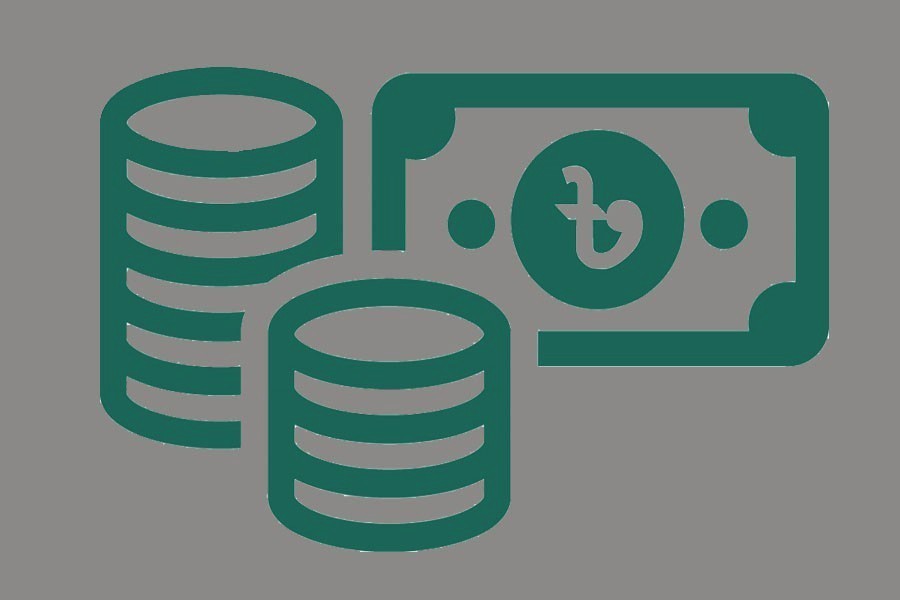The government's debt soared in the first half of the current calendar year, fuelled by a sharp rise in its borrowing, an American consultancy has found.
The government borrowing shot up by 3.5 percentage points to 37.8 per cent of the GDP during January-June compared with the same period a year earlier, according to the Institute of International Finance, a Washington-based financial intelligence.
The household debt surged to 11 per cent of the Gross Domestic Product during the first half of the year against 10.5 per cent at the same period last year.
The financial sector debt increased to 2.3 per cent of the GDP during the period under review against that of 2.1 per cent of the same period a year earlier. Financial institutions issue some debt instruments, mostly junior bonds, to meet their capital shortfall.
The non-financial corporate debt, however, slightly dropped to 35 per cent of the GDP from 35.8 per cent during the same period last year.
Economists attributed the rise in the government's debt to the poor revenue mobilisation and slow economic activities.
They said the COVID-19 pandemic continues to hit the domestic economy, leading to the fall in revenue collections.
Many people were unemployed or saw their income slump in the aftermath of the outbreak of the deadly virus.
Dr. Ahsan H Mansur, executive director at the Policy Research Institute of Bangladesh (PRI), a private think tank, told the FE that the main reason for a spike in government debt is falling tax collection.
"The revenue mobilisation was much lower in the past six months than the same period last year. This was the main reason," Dr. Mansur said.
He said the revenue shortfall will exacerbate the situation as the government services its debt from taxes.
Another reason is the implementation of big projects, mostly financed by foreign borrowing.
"The big projects under construction have no financial returns, so the debt will increase more and its rate will be the fastest shortly."
Dr. Mustafa K. Mujeri, executive director at the Institute for Inclusive Finance and Development, told the FE that this was the high time the government took cautionary measures on the debt; otherwise it may turn out to be a big burden for the nation.
He said Bangladesh's external debt is on the rise as many private firms have been borrowing from overseas sources.
He stressed the need for proper and efficient uses of debt.
"There were instances of misuse of debt in the past," he said, warning the failure in servicing debt downgrades the country's credit ratings.
Dr Mujeri, who had served as the chief economist at the Bangladesh Bank, said the debt sustainability depends on the effective implementation of projects and proper uses of debt.
Dr. Mirza Azizul Islam, a former finance adviser, told the FE the debt is on a rising trend, fuelled by the COVID situation.
He said central banks across the globe are pushing "quantitative easing" and expansionary monetary policies to support the deficit.
He said once the pandemic goes away, the situation may improve provided that revenue board boosts collection.


